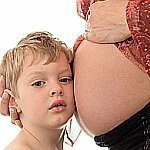Nurcan Muftuoglu, the assistant general-coordinator of the foundation, expressed that 75 percent of parents in Turkey have children thinking 'they'll take care of us during our old ages.'
With the cooperation of the United Nations (UN) Population Fund and The General Directorship for Problems and Status of Women, a 3rd World Country Program is being pursued in Turkey. A panel on "Family Health and Planning," was part of this program.
"Development is a notion linked to education"
At the panel held at the conference room of the Gaziantep municipality, Muftuoglu talked about the close link between development and education:
"Development is no longer a notion judged by just economic variables. The educational indicators are also very important in the process of development. Turkey needs to overcome its shortages in the field of education."
"Compared to men, women are behind in politics and education"
According to Dr. Gurses, the inequality between men and women in Turkey becomes very obvious when we look at participation in education, job market, and politics. Gurses summarized the man-woman relation as follows:
"16.7 percent of women aged between 15-49 in Turkey, have received absolutely no education. If we want to state this in numbers, 2 million 877 thousand 856 women, aged between 15-49, did not receive any form of education."
About 1,200 women dye in labor every year
The research on women in Turkey provided the following information:
* 23 percent of women in Turkey either become pregnant or give birth before the age of 20.
* The results of the 2000 population count in Turkey, demonstrate that 52 percent of marriages in Turkey happen before the age of 20.
* Each year, 1,200 women dye during pregnancy, in labor, or after childbirth. These deaths are usually preventable.
* Almost half of maternal deaths happen in labor. Many women with serious
medical deficiencies become pregnant.
* Turkey ranked 152nd among 174 countries in the Human Development Index in 1965. It rose to the 85th place in 1998. Our country has moved on to be among the moderately developed countries from among the countries with low development. But the increasing inequality between men and women is a saddening fact.
42 percent of the women in Diyarbakir are uneducated
* In 1965, the rate of literacy was 53 percent in Turkey. It rose to 84 percent in 1998. In 1965, only 45 percent was registered in a school. In 1998, 61 percent of the children were registered in a school. However, the weakest variable in our process of development is education.
* In Turkey, 32 percent of girls, between the ages of 7-13, are not registered in a school. 75 percent of the parents still have children thinking, "they will take care of us during our old age."
* Illiterate women have an average of 3.9 children. The ideal number of children would be 2.8. University graduates, on the other hand, have only 1.3 children, while the ideal number would be 1.9.
* The eastern and southeastern provinces of Diyarbakir, Erzurum and Sanliurfa have the highest number of uneducated women and girls.
* 42 percent of the women in Diyarbakir have never had any form of education. 45.2 percent of students in regular high schools are girls. In technical high schools, only 37.5 percent of students are girls. (NK/EA/NM)





